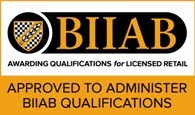To view the original article Click Here
Title – Café society will have to wait
Source – The Independent on Sunday
Date – 24th February 2008
Shock horror!! An old colleague of mine recently returned to the UK after several years on contract in southern Europe, when asked how they thought it had changed they bluntly said… “It hasn’t”. They were expecting their local to be open late as had their local bars in Europe; they had expected to get a seat every time they went or to find somewhere else where they could get a seat, but the bar was full and their friends were happy to stand; they expected to be able to buy a good bottle of wine for just a few Euros and were horrified to see the cost; but most of all they expected to receive great service and found none!
Two years on from the implementation of the Licensing Act 2003 and as a nation we have not changed, binge drinking still happens, fighting once they bars stop serving still happens and we drink can’t drink 24 hours a day…
We should not be flippant; no one will argue that there is a problem with binge drinking in some areas and certainly in many city centres and most would happily support sensible measures to resolve these problems. But we have to be realistic.
The old licensing laws restricting the sale of alcohol were brought in during the first world war over 90 years ago. There was good reason at that time for the restriction, the fact is we left it far too late to relax those restrictions and we believed that closing pubs at 11pm was the solution to keeping alcohol consumption under control. Anyone who believed that the relaxation of these rules in 2006 would not have a short term negative effect is at best misguided; anyone who thought that the relaxation would create an immediate Southern European style 'café society' is delusional, we are not in southern Europe we share very little with their culture and more importantly their climate and have more in common with our Scandinavian neighbours (and if you look at alcohol consumption there, you will certainly see a more familiar scene), but most importantly those who seriously believed that this change would happen over a couple of years, brings a new meaning to the word naive.
So should we abandon it now? No it’s two years old, it needs to be refined and it needs to be given a chance. The Licensing Act 2003 was never the solution to the problem; it was a step in the right direction. Millions of people enjoy the freedom it brings and millions are more relaxed in the new environments the Act provided. It is flippant to compare licensing reform with other great changes in other countries, but when restrictions have been in place for generations and built into our way of life it takes time to benefit from changes and to accept them, two years is hardly comparable to the generations of people forced to down drinks at 11pm before being thrown out onto the streets. Cultural changes don’t happen over night they take years to develop and generations to change, they are borne of consistency and not of continuous change, going back and forth with legislative change makes a bad situation worse, not better. Looking for the positives rather than just examining the negatives would be a good place to start.
Please visit our website at www.btbl.co.uk




